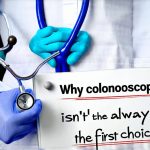Colorectal cancer remains one of the most prevalent cancers worldwide, impacting countless individuals and families. Often developing silently over years, it frequently presents with noticeable symptoms only after reaching an advanced stage, making early detection paramount for successful treatment outcomes. While lifestyle factors like diet and exercise play a role, proactive screening is arguably the most powerful tool we have in preventing this disease – or identifying it at its earliest, most treatable stages. This isn’t about fearing cancer; it’s about taking control of your health with knowledge and preventative action.
The good news is that colorectal cancer is highly preventable when caught early. Regular colonoscopies aren’t simply diagnostic tests; they are opportunities for intervention. During a colonoscopy, pre-cancerous polyps – abnormal growths in the colon or rectum – can be identified and removed before they ever have a chance to develop into cancerous tumors. This proactive approach dramatically reduces the risk of developing colorectal cancer and improves overall health outcomes. Understanding the benefits and process involved is the first step towards prioritizing this life-saving screening.
The Power of Early Detection & Prevention
Colonoscopies are considered the gold standard for colorectal cancer screening because they offer a comprehensive view of the entire colon, unlike other methods that might only examine parts of it. This complete visualization allows doctors to detect even small polyps that could potentially become cancerous over time. – Removing these polyps during the same procedure effectively eliminates the risk associated with them. It’s akin to nipping a problem in the bud before it blossoms into something serious. The process isn’t just about finding cancer; it’s about preventing it from ever forming.
Beyond polyp removal, colonoscopies can also detect early-stage colorectal cancers, which are typically easier to treat and have significantly higher cure rates than later-stage cancers. Early diagnosis means less invasive treatment options, reduced healthcare costs, and a better quality of life for the individual. The impact on survival rates is substantial: individuals diagnosed with stage I colorectal cancer have a 90% or greater five-year survival rate, whereas those diagnosed at stage IV often face more limited prognosis.
The effectiveness of regular colonoscopies in reducing colorectal cancer incidence and mortality has been demonstrated through numerous studies and real-world data. Countries with widespread screening programs consistently exhibit lower rates of the disease. This underscores the importance of adhering to recommended screening guidelines, which are continually refined based on research and evolving medical understanding. It’s a testament to the power of preventative medicine and proactive health management.
Understanding the Colonoscopy Procedure
The colonoscopy procedure itself is often what deters people from scheduling it, stemming from anxieties about discomfort or invasiveness. However, advancements in techniques and preparation have made the process far more tolerable than many imagine. Typically, patients need to undergo bowel preparation a day or two before the scheduled colonoscopy. This involves following a specific diet and taking laxatives to completely clear the colon, ensuring optimal visualization during the examination. While the prep can be unpleasant, it’s crucial for accurate results.
During the colonoscopy itself, which usually takes between 30-60 minutes, the patient is sedated – often with “twilight sleep” – making them comfortable and minimizing any discomfort. A long, flexible tube equipped with a camera (the colonoscope) is gently inserted into the rectum and guided through the entire colon. The doctor carefully examines the lining of the colon for any abnormalities, such as polyps or tumors. If polyps are found, they’re usually removed painlessly during the procedure using specialized instruments passed through the colonoscope. Biopsies can also be taken if necessary to further evaluate suspicious areas.
Following the colonoscopy, patients typically need someone to drive them home due to the sedation. Some bloating and mild cramping are common side effects, but these generally subside quickly. The doctor will then discuss the findings with the patient and recommend any necessary follow-up care or screening intervals. It’s crucial to understand that a single colonoscopy isn’t necessarily a one-time fix; regular screenings are essential for ongoing prevention.
Who Should Get Screened & When?
Determining when to begin colorectal cancer screening, and how often to repeat it, depends on several factors including age, family history, and personal risk factors. Current guidelines generally recommend starting regular screening at age 45, regardless of symptoms. This is a shift from previous recommendations which started at 50, acknowledging the increasing incidence of early-onset colorectal cancer. – Individuals with a family history of colorectal cancer or polyps, or those with certain genetic syndromes, may need to begin screening earlier and/or more frequently.
There are alternative screening methods available besides colonoscopy, such as fecal immunochemical tests (FIT) and stool DNA tests. These tests detect traces of blood or abnormal DNA in the stool, which can indicate the presence of polyps or cancer. However, if a non-colonoscopic test comes back positive, a colonoscopy is always required to confirm the findings and remove any detected abnormalities. Colonoscopy remains the preferred method due to its ability to both detect and remove pre-cancerous growths in one procedure.
Understanding your individual risk factors and discussing them with your doctor is essential for developing a personalized screening plan. Factors that can increase risk include inflammatory bowel disease (IBD), obesity, smoking, and a diet high in red and processed meats. Proactive communication with your healthcare provider ensures you’re receiving the most appropriate and effective screening strategy.
Debunking Common Myths & Concerns
Many people hesitate to undergo colonoscopy due to misconceptions or fears surrounding the procedure. One common myth is that it’s incredibly painful – as mentioned earlier, sedation effectively minimizes discomfort during the examination. Another concern is the bowel preparation, which can be unpleasant but is a necessary part of ensuring accurate results. There are now various prep options available with varying degrees of palatability and side effects; discussing these with your doctor can help find one that’s more manageable for you.
Another misconception is that if you feel healthy, you don’t need to worry about colorectal cancer screening. However, colorectal cancer often develops without noticeable symptoms in its early stages. This is why regular screening is so vital – it can detect the disease before you even realize something is wrong. Waiting until symptoms appear typically means the cancer has already progressed and may be more difficult to treat.
Finally, some individuals worry about the cost of a colonoscopy. While costs vary depending on location and insurance coverage, many insurance plans now cover routine colorectal cancer screening as preventative care. – Furthermore, financial assistance programs are often available for those who qualify. Don’t let concerns about discomfort or cost prevent you from taking proactive steps to protect your health.
Preparing for Your Colonoscopy & Follow-Up
Preparing adequately for a colonoscopy involves more than just the bowel preparation mentioned earlier. It’s essential to inform your doctor about any medications you’re taking, including blood thinners and supplements, as these may need to be adjusted before the procedure. You should also discuss any allergies or medical conditions with your physician. – Arranging for transportation home after the colonoscopy is crucial due to the sedation.
After the colonoscopy, it’s vital to follow your doctor’s recommendations regarding follow-up care and future screening intervals. The frequency of subsequent screenings will depend on the findings during the initial colonoscopy. If no polyps are found, you may not need another colonoscopy for 10 years. However, if polyps are removed, or if other abnormalities are detected, more frequent screenings may be necessary.
Ultimately, prioritizing regular colonoscopies isn’t about dwelling on the possibility of cancer; it’s about empowering yourself with knowledge and taking proactive steps to safeguard your health. It’s an investment in a longer, healthier future – one where preventative measures dramatically reduce the risk of developing this preventable disease.


















